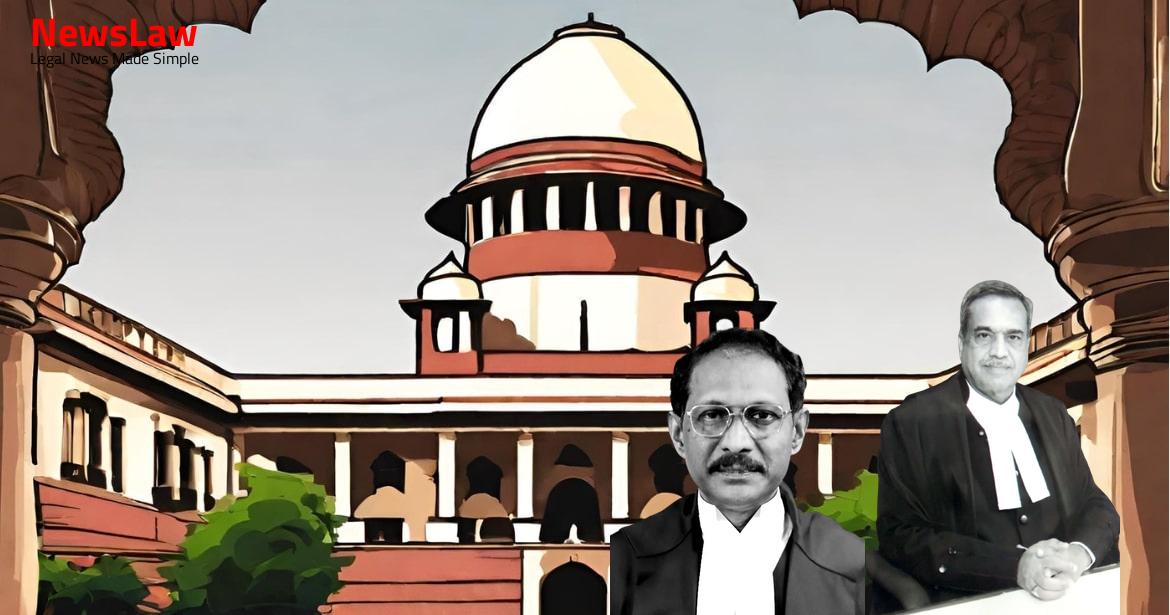In a significant legal battle, the Supreme Court of India delivered a verdict on the unauthorized fund transfer case involving a School and a Bank. The ruling sheds light on the responsibilities and liabilities in cases of fraudulent transactions, providing justice for the affected parties.
Facts
- On 9.9.2014, it was detected that Rs. 25,00,000/- was unauthorizedly transferred from the school’s account
- The school did not opt for net banking facility for any of their three accounts
- The then Principal’s personal CIF got tagged with the school’s accounts facilitating online transfer of money
- The Principal lost his mobile phone with BSNL postpaid sim, leading to unauthorized activities
- The School Principal never approached the Bank for net banking facility for school accounts
- The Principal’s personal savings account got tagged with the school’s three accounts
- Suspicion of Principal’s complicity in internet transactions for fund transfer
- Observation of gross deficiency in Bank’s safeguarding of school’s money
- Bank held liable for the loss suffered by the school due to siphoning of funds
- Delay in informing BSNL and the Bank facilitated further unauthorized transfers
- A transfer made in the name of Sanjay Kumar Sinha instead of the registered phone subscriber
- The NCDRC dismissed the appeal on 24.4.2018.
- Sanjiva Kumar Sinha’s mobile phone was inactive for six days, and the subscriber did not inform the service provider of any issues.
- Partial relief was granted by holding Bank authorities responsible for compensation of Rs. 1,00,000/- and costs of Rs. 10,000/-.
- The complainant approached NCDRC for further relief after the State Commission’s limited decision.
- Duplicate SIM was issued by BSNL authorities and the mobile connection was transferred to Sanjay Kumar Sinha, indicating possible involvement.
- The Bank mistakenly tagged the school’s account with the personal account of Sanjiva Kumar Sinha, the Principal of the school.
- NCDRC concurred with the State Commission’s decision on compensation of Rs. 1,00,000/- payable by the Bank.
- NCDRC questioned if the transactions could have occurred due to connivance or gross negligence on Sanjiva Kumar Sinha’s part.
- The NCDRC rejected the argument that an unscrupulous person obtained duplicate SIM to carry out the fraudulent transactions.
Arguments
- The bank linked the school’s account with internet banking facility without any request from the school authorities which caused the fraud.
- The Banking Ombudsman found the bank at fault in linking the school’s account with internet banking facility.
- The school suffered a total loss of Rs. 30,00,000.
- The formal complaint with the bank was lodged only after the siphoning of Rs. 25,00,000 from the school’s account, which was considered a contributory factor in the loss.
- The bank submitted that the delayed complaint should justify limiting the compensation to Rs. 1,00,000.
Also Read: Avitel Post Studioz Ltd. v. HSBC: Enforcement of Foreign Arbitral Award
Analysis
- The State Commission, Banking Ombudsman, and NCDRC concurrently found that the bank enabled fraudulent transactions by linking the school Principal’s individual account to the school’s account.
- The police investigation and charge sheet revealed that the two accused were responsible for the illegal transactions, and there was no proof of complicity on the part of the School Principal.
- The complainant cannot be held responsible for the loss of Rs. 25,00,000 directly or vicariously.
- The Bank should compensate the School for the amount transferred until the detection of the misappropriation but not for the additional siphoned amount the following day.
- The delay in lodging an official complaint by the school staff and the subsequent siphoning of funds raise questions of contributory negligence by the school authorities.
- The denial of compensation by the State Commission and NCDRC is unjustified, considering the fault of the Bank in facilitating the loss.
- The Banking Ombudsman also recognized the Bank’s fault but declined to order a refund due to exceeding the pecuniary limit.
- The charge sheet revealed that the Bank failed to respond to inquiries raised by the police regarding the fraudulent transactions until a later date.
- Charges were framed against two individuals for siphoning money through illegal transactions, while no complicity was found on the part of the School Principal.
Also Read: Insurance Claim Repudiation due to Fire Incident: Court’s Legal Analysis
Case Title: DAV PUBLIC SCHOOL Vs. THE SENIOR MANAGER INDIAN BANK MIDNAPUR BRANCH
Case Number: C.A. No.-009352-009352 / 2019



